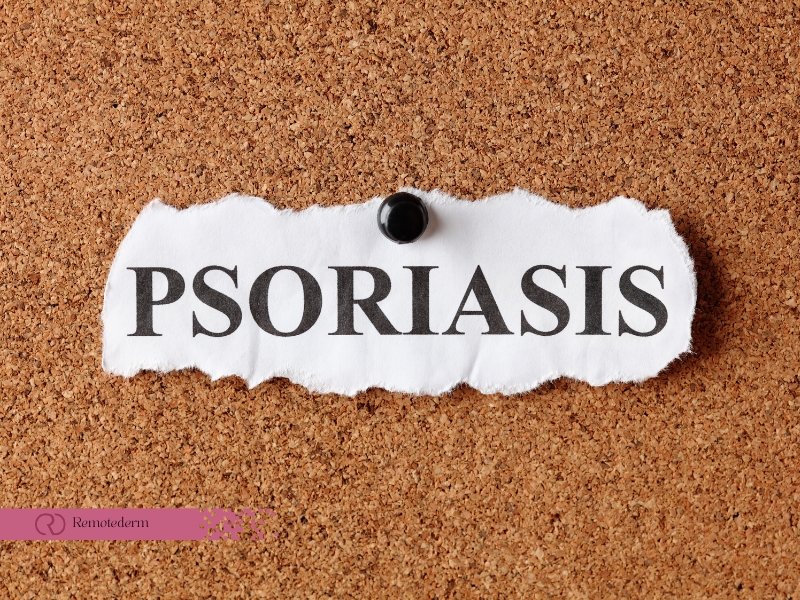Psoriatic arthritis is a serious disease of the skin which has struck many individuals all over the world including Canada. Although not curable, it is possible for psoriasis remission to occur. This article covers tips on how to put psoriasis in remission, manage symptoms, and maintain skin health for longer relief.
What is Psoriasis Remission?
Psoriasis remission means severe relieves of symptoms. While some of them will be symptom-free for some time, remission is not the same for everyone. So, learning how to get psoriasis into remission involves using the right treatments and making lifestyle adjustments. Key Factors include:
- Consistent treatments: comply with the medications that have been prescribed
- Healthy lifestyle: get a balanced diet and quit your exercise stress
- Avoid triggers: Discovering what aggravates your psoriasis can help avoid flares.
How to Put Psoriasis in Remission

Regardless of the fact that there is no cure, various approaches can assist in alleviating symptoms and bringing these types of chronic skin diseases into remission:
1. Medications and Treatments
The medications and treatments for the first line are typically used in combination to deal with psoriasis and to achieve remission.
- Topical treatments: Steroids or vitamin D analogs can cure it.
- Biologics: The drugs that control the immune system are used.
- Phototherapy: These are light treatments that help to reduce the swelling.
The online psoriasis dermatology treatment in Canada offers the option of getting the treatment even for the people who are busy or live in remote areas.
2. Psoriasis Diet
A proper diet has a huge impact on psoriasis management. Here are some beneficial foods for a psoriasis diet guide:
- Leafy greens: They are the best source of antioxidants for your skin health.
- Probiotics: They assist the gut health which can lead to better skin.
- Omega-3 fatty acids: They are found in fish and help reduce inflammation.
Total avoidance of processed foods, alcohol, and gluten is necessary as these may aggravate the symptoms.
3. Skincare Routine
A good skincare routine is a must:
- Moisturize every day: This is a good remedy for cracked and scaly skin.
- Using gentle products: Safe cleansers are recommended to avoid sensitive skin.
- Sun Exposure: Limited exposure to the sun may alleviate some conditions, but sunburns should be avoided.
If you have genital psoriasis or facial psoriasis, talk to your dermatologist about gentler treatments.
Can Psoriasis Go Into Remission?
Sure enough, psoriasis can go into remission, in most cases, it is treated with a combination of proper medication and lifestyle changes. People who had long periods of time without symptoms may however be able to keep their remission for a prolonged time if they follow the proper skin care, diet, and stress management. Tips to Maintain Remission:
- Stick to treatments: Never stop taking medication even if the symptoms get better.
- Manage stress: Managing stress is key since stress can be the cause of flare-ups, so try to learn relaxation methods.
- Hydrate: Drinking water will help to keep your skin moisturizing.
Does Psoriasis Go Into Remission Without Treatment?
In some very rare occasions, psoriasis may go into a remission phase without treatment, but generally, it will improve with the proper therapeutic modalities. Lifestyle changes mixed with medical supervision give the best possibility for long remission.
Online Psoriasis Dermatology in Canada
Online psoriasis dermatology services in Canada make it so convenient for patients to receive treatment from the comfort of their own homes. Virtual consultations bring specialists to your home, so no need for in-person appointments, thus helping the Canadians get the required care.
Preventing Psoriasis Flare-ups

Even if you can’t completely avoid the medical condition psoriasis, there are still some things you can do to better manage it and minimize the occurrence and the intensity of its flare-ups. Here are some tips for preventing psoriasis:
- Identify and avoid triggers: The options of things to avoid are stress, particular food, alcohol, or medications.
- Stick to your skincare routine: Wearing gentle products and using moisturizing regularly can help to get the heal-off the skin.
- Stay active: Exercising on a regular basis can be the “motor” for your immune system and skin to be healthy.
- Seek support: The users of online communities and people who are part of support groups can provide one of the best ways and cheer-up for the depressions and difficulties in life.
Final Thoughts
Even though there is no cure for the psoriasis, it is possible to reach remission through the continuous and consistent treatment along with the lifestyle changes. The online dermatology services in Canada have made it easier than ever for getting professional advice and treatment without going out. Is it faking? Managing stress, being mindful about diet, and developing a skincare routine can actually help in getting rid of flare-ups.
FAQs
Can psoriasis affect nails?
Yes, nail psoriasis can result in pitting, discolouration, and thickening of the nails.
Can stress make psoriasis worse?
Yes, stress is one of the major reasons for the psoriasis flares. Stress management can assist in the reduction of discomfort.
Can psoriasis affect my joints?
Yes, it is the case that some people with psoriasis have psoriatic arthritis which is the cause of joint pain and stiffness.
Can children get psoriasis?
Yes, psoriasis can occur in children, although the symptoms may be different from adults. Pediatric dermatologists can give the proper treatment.
